IOC to select 2016 Olympics host
The International Olympic Committee is set to select the hosts of the 2016 Olympics at 19:00 CET on Thursday.
Friday, 02.10.2009.
15:47

The International Olympic Committee is set to select the hosts of the 2016 Olympics at 19:00 CET on Thursday. Four cities - Chicago, Madrid, Rio de Janeiro and Tokyo - are bidding for the Games and are making their final presentations to the IOC in Denmark. IOC to select 2016 Olympics host U.S. President Barack Obama boosted Chicago's bid by addressing delegates. Tokyo intend to hold a "green Games" while Rio want the first Olympics in South America. Madrid began their presentation at 14:45 CET. The presentation ceremony in Copenhagen opened at 07:30 CET with Chicago's pitch, followed by Tokyo and Rio. Obama, who flew in to join his wife Michelle, said the United States was "ready and eager" to assume the "sacred trust" of staging the Games. He described himself as "a proud Chicagoan", and told the 106 IOC members: "I urge you to choose Chicago. "If you do - if we walk this path together - then I promise you this: The city of Chicago and the United States of America will make the world proud." Mrs Obama, a Chicago native, said: "I never dreamed the Olympic flame would light up lives in my neighbourhood." Japan's newly elected prime minister Yukio Hatoyama underlined how important environmental issues are to Tokyo's plan. Hatoyama said: "Tokyo will show the world how a great metropolis can host an Olympics without harming the environment. "Tokyo will provide a Games which assures personal security and environmental stability. It will show a harmony between humanity and nature. "It would be a great honor and privilege for the Japanese people to host the Olympics again, to savor together the image of the Olympic Games. We would honor the Olympic Charter in letter and spirit." Rio's presentation delivered a passionate appeal for South America to be awarded the Olympics for the first time. Brazilian president Luiz Inacio Lula da Silva told the IOC: "Rio is ready. Give us this chance and you will not regret it. "Rio will deliver an unforgettable Games. You will see for yourselves the passion, the energy and the creativity of the Brazilian people." President Lula feels 2016 is an opportunity for the IOC to show that the Games belong to people of all continents. "I truly believe this is Brazil's time. For the others, it would be just another Games," he added. "It will not be just Brazil's Games but South America's. It will serve to inspire the 180m young people on the continent. It is time to redress the balance." Chicago are rated as slight favorites, but many commentators are describing the outcome as too close to call. "Any one of these four cities could deliver a great Olympics," said London 2012 chairman Sebastian Coe. "This is probably the highest quality contest there has been. It is very close competition and it could all be decided by the final presentations." The city receiving the fewest votes will be eliminated round-by-round until one candidate secures a majority. International Olympic Committee president Jacques Rogge told the BBC: "I believe it's going to be very close - this is a trend we have seen in the last five to six years. "Security - not only physical but also in terms of the organisation - is very important. We need a very good Olympic Village, state-of-the art venues, a good transportation system. "If beyond that we can have a very good home team and a very warm public, the game is almost over." A large factor behind Chicago's potential success could lie in the fleeting presence of President Obama, a former Illinois senator and Chicago resident. Obama arrived on board Air Force One in the Danish capital on Friday at 0650 and had left by 1200, but his wife has been there since Wednesday, lobbying IOC members. In the past, the impact of star personalities on Olympic bids has been key, demonstrated when lobbying by former UK Prime Minister Tony Blair helped London win the 2012 Games and Russian President Vladimir Putin led Sochi's bid for the 2014 Winter Olympics. A number of factors are considered by the IOC's voting members in determining an Olympic host city; political and social support, general infrastructure, sports venues, Olympic Village, environment, security, transport, accommodation, past experience, finance, and legacy. However, alongside these more fundamental considerations, other factors such as emotion, sentiment, geography, politics, self-interest and other factors also play a role - often making predicting a winner near impossible. The key to victory is picking up votes from the eliminated cities. The voting starts with all four cities in the hat and the candidate city with the least amount of votes is eliminated at the end of the first round. The IOC members from country of the rejected city then join the voting and a new vote is cast between the three remaining cities. This process is repeated until a majority is found, expected to be in the third round. Still, one major consideration is believed to mark Chicago and Rio de Janeiro as favorites. Although there is no official IOC continental rotation policy, it is believed the Americas may have an edge as previous Summer Games will have been held in Europe, Asia, Europe again and Australasia (although it is worth noting the 2010 Winter Games are in North America). And Rio will be hoping the opportunity to award South America the Olympics for the first time could prove decisive. Long-time IOC member Dick Pound noted recently: "Policy-wise, the IOC has to decide if we're ready to go to a new continent (South America). Is the time right?" Factors against Rio include concerns about crime and security in the area, an issue representatives from Madrid and Tokyo have drawn attention to in recent speeches and press releases. Some extra spice has been added to the process with a row breaking out after Spain's Olympic vice-president Jose Maria Odriozola labelled Rio as "the worst of the four candidates", breaking IOC rules about criticism of rival bids. Madrid officials swiftly apologized for the comments, but Rio have made an official complaint to the IOC over the incident. Madrid, loser to London in the 2005 bidding process for the 2012 Games, boasts a sound plan, having already built most of its venues. It also has the behind-the-scenes support of former IOC president and current honorary president Juan Antonio Samaranch and credit in the bank from previous bids. Tokyo also makes a compelling case on paper - a compact Games with superb green and redevelopment credentials. "They (Tokyo Games) have been designed by athletes for athletes," said Mikako Kotani, a 1988 Seoul Games bronze medalist in synchronized swimming and head of the bid's athletes commission. "Ninety-seven percent of venues are within an 8km radius of the stadium and the athletes village. Seventy percent of athletes are less than 10 minutes from their venues." However, a win for Madrid would make it three European-based Olympics in a row (London 2012 and Sochi 2014 precede it), while Tokyo's bid could suffer from being too like and too close to Beijing, last year's hosts. The latest indicator of where the IOC's vote may be headed - their final evaluation report published at the beginning on September - only served to further blur the situation, with no rankings offered and all cities praised. British IOC member Craig Reedie said that the vote would be a "very, very close race between four outstanding bids". He said: "Because the bids are so good and because it is so close the last few hours are going to be even more exciting than usual."
IOC to select 2016 Olympics host
U.S. President Barack Obama boosted Chicago's bid by addressing delegates.Tokyo intend to hold a "green Games" while Rio want the first Olympics in South America. Madrid began their presentation at 14:45 CET.
The presentation ceremony in Copenhagen opened at 07:30 CET with Chicago's pitch, followed by Tokyo and Rio.
Obama, who flew in to join his wife Michelle, said the United States was "ready and eager" to assume the "sacred trust" of staging the Games.
He described himself as "a proud Chicagoan", and told the 106 IOC members: "I urge you to choose Chicago.
"If you do - if we walk this path together - then I promise you this: The city of Chicago and the United States of America will make the world proud."
Mrs Obama, a Chicago native, said: "I never dreamed the Olympic flame would light up lives in my neighbourhood."
Japan's newly elected prime minister Yukio Hatoyama underlined how important environmental issues are to Tokyo's plan.
Hatoyama said: "Tokyo will show the world how a great metropolis can host an Olympics without harming the environment.
"Tokyo will provide a Games which assures personal security and environmental stability. It will show a harmony between humanity and nature.
"It would be a great honor and privilege for the Japanese people to host the Olympics again, to savor together the image of the Olympic Games. We would honor the Olympic Charter in letter and spirit."
Rio's presentation delivered a passionate appeal for South America to be awarded the Olympics for the first time.
Brazilian president Luiz Inacio Lula da Silva told the IOC: "Rio is ready. Give us this chance and you will not regret it.
"Rio will deliver an unforgettable Games. You will see for yourselves the passion, the energy and the creativity of the Brazilian people."
President Lula feels 2016 is an opportunity for the IOC to show that the Games belong to people of all continents.
"I truly believe this is Brazil's time. For the others, it would be just another Games," he added.
"It will not be just Brazil's Games but South America's. It will serve to inspire the 180m young people on the continent. It is time to redress the balance."
Chicago are rated as slight favorites, but many commentators are describing the outcome as too close to call.
"Any one of these four cities could deliver a great Olympics," said London 2012 chairman Sebastian Coe.
"This is probably the highest quality contest there has been. It is very close competition and it could all be decided by the final presentations."
The city receiving the fewest votes will be eliminated round-by-round until one candidate secures a majority.
International Olympic Committee president Jacques Rogge told the BBC: "I believe it's going to be very close - this is a trend we have seen in the last five to six years.
"Security - not only physical but also in terms of the organisation - is very important. We need a very good Olympic Village, state-of-the art venues, a good transportation system.
"If beyond that we can have a very good home team and a very warm public, the game is almost over."
A large factor behind Chicago's potential success could lie in the fleeting presence of President Obama, a former Illinois senator and Chicago resident.
Obama arrived on board Air Force One in the Danish capital on Friday at 0650 and had left by 1200, but his wife has been there since Wednesday, lobbying IOC members.
In the past, the impact of star personalities on Olympic bids has been key, demonstrated when lobbying by former UK Prime Minister Tony Blair helped London win the 2012 Games and Russian President Vladimir Putin led Sochi's bid for the 2014 Winter Olympics.
A number of factors are considered by the IOC's voting members in determining an Olympic host city; political and social support, general infrastructure, sports venues, Olympic Village, environment, security, transport, accommodation, past experience, finance, and legacy.
However, alongside these more fundamental considerations, other factors such as emotion, sentiment, geography, politics, self-interest and other factors also play a role - often making predicting a winner near impossible.
The key to victory is picking up votes from the eliminated cities.
The voting starts with all four cities in the hat and the candidate city with the least amount of votes is eliminated at the end of the first round. The IOC members from country of the rejected city then join the voting and a new vote is cast between the three remaining cities. This process is repeated until a majority is found, expected to be in the third round.
Still, one major consideration is believed to mark Chicago and Rio de Janeiro as favorites.
Although there is no official IOC continental rotation policy, it is believed the Americas may have an edge as previous Summer Games will have been held in Europe, Asia, Europe again and Australasia (although it is worth noting the 2010 Winter Games are in North America).
And Rio will be hoping the opportunity to award South America the Olympics for the first time could prove decisive.
Long-time IOC member Dick Pound noted recently: "Policy-wise, the IOC has to decide if we're ready to go to a new continent (South America). Is the time right?"
Factors against Rio include concerns about crime and security in the area, an issue representatives from Madrid and Tokyo have drawn attention to in recent speeches and press releases.
Some extra spice has been added to the process with a row breaking out after Spain's Olympic vice-president Jose Maria Odriozola labelled Rio as "the worst of the four candidates", breaking IOC rules about criticism of rival bids.
Madrid officials swiftly apologized for the comments, but Rio have made an official complaint to the IOC over the incident.
Madrid, loser to London in the 2005 bidding process for the 2012 Games, boasts a sound plan, having already built most of its venues. It also has the behind-the-scenes support of former IOC president and current honorary president Juan Antonio Samaranch and credit in the bank from previous bids. Tokyo also makes a compelling case on paper - a compact Games with superb green and redevelopment credentials.
"They (Tokyo Games) have been designed by athletes for athletes," said Mikako Kotani, a 1988 Seoul Games bronze medalist in synchronized swimming and head of the bid's athletes commission.
"Ninety-seven percent of venues are within an 8km radius of the stadium and the athletes village. Seventy percent of athletes are less than 10 minutes from their venues."
However, a win for Madrid would make it three European-based Olympics in a row (London 2012 and Sochi 2014 precede it), while Tokyo's bid could suffer from being too like and too close to Beijing, last year's hosts.
The latest indicator of where the IOC's vote may be headed - their final evaluation report published at the beginning on September - only served to further blur the situation, with no rankings offered and all cities praised.
British IOC member Craig Reedie said that the vote would be a "very, very close race between four outstanding bids".
He said: "Because the bids are so good and because it is so close the last few hours are going to be even more exciting than usual."











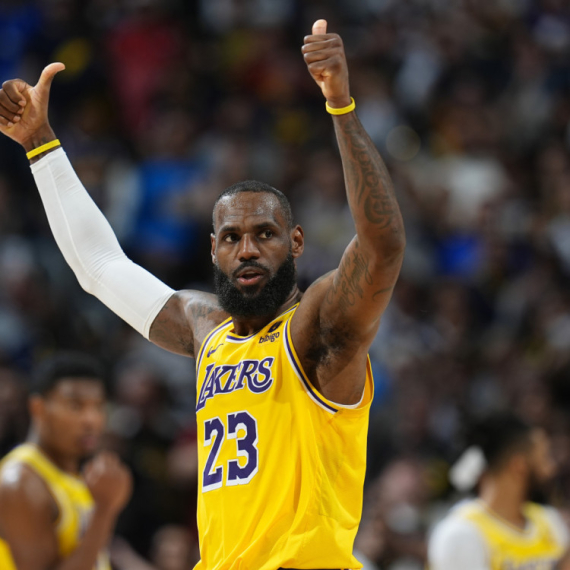
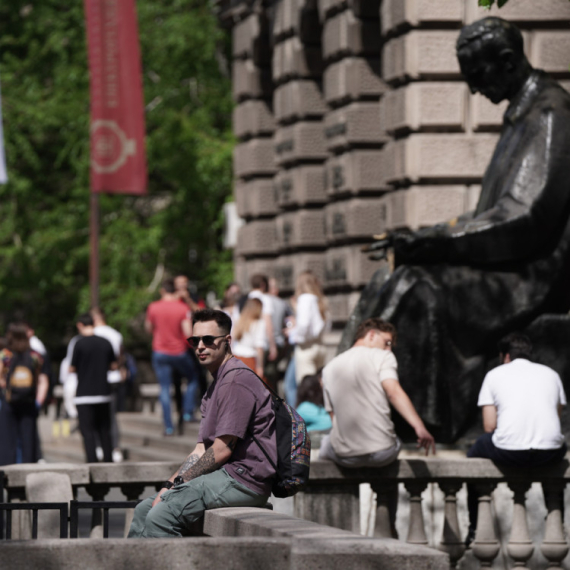



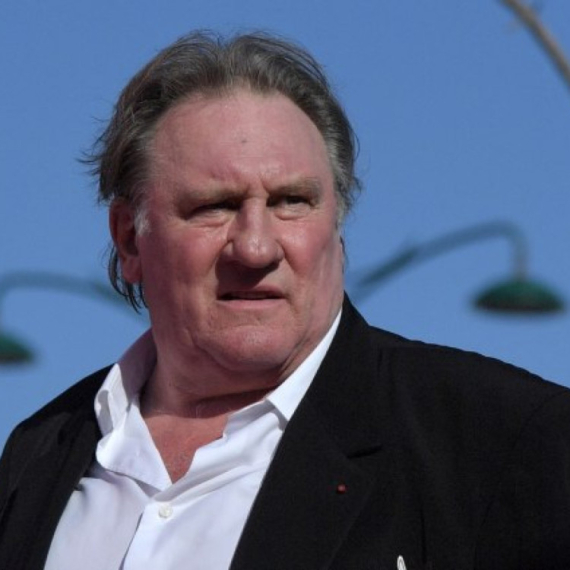

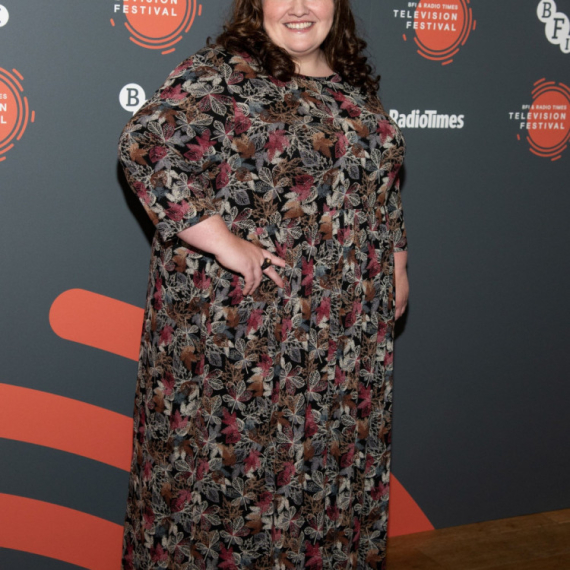






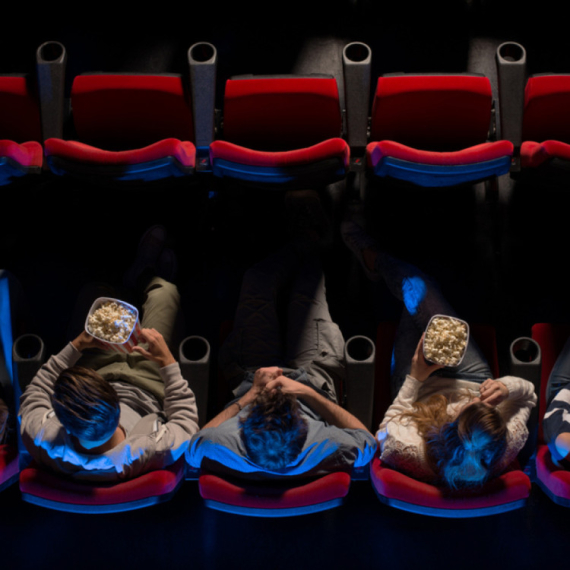




















Komentari 4
Pogledaj komentare